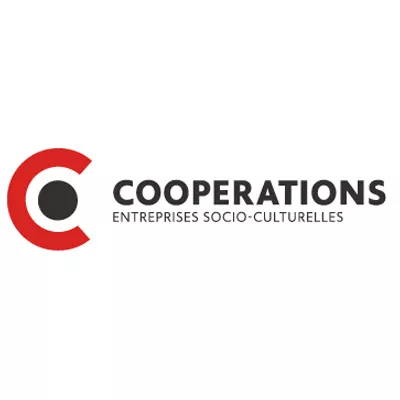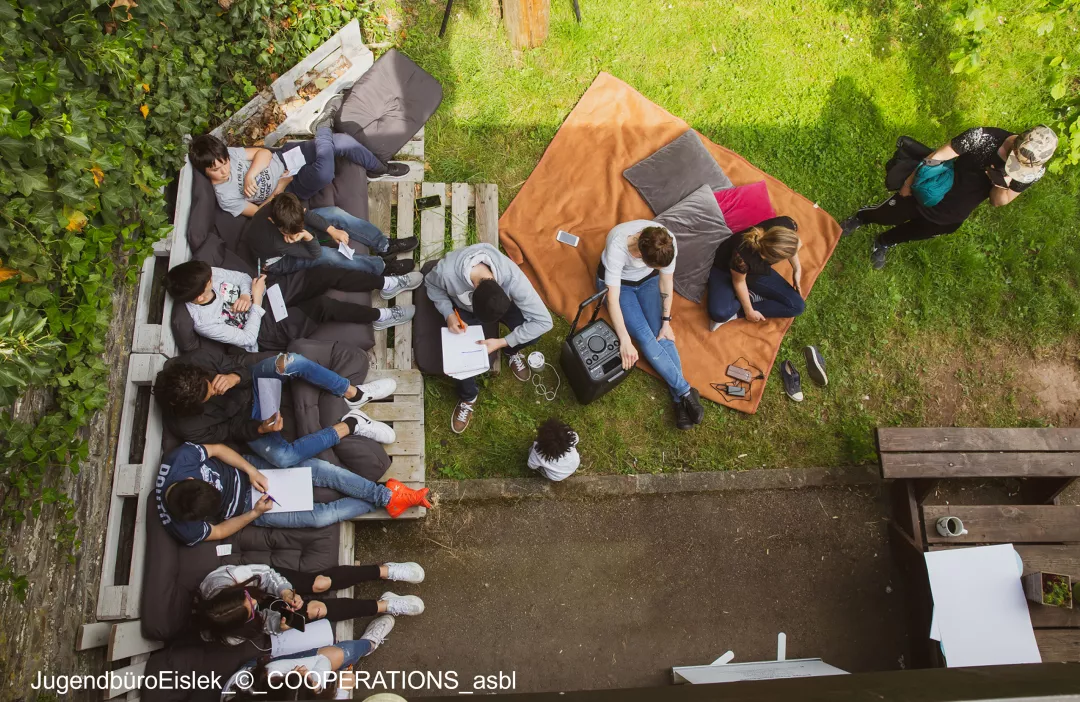General information
RDP Priority
- P6. Social inclusion and local development
RDP Focus Area
- 6B: Local development
RDP Measure
- M19: LEADER/CLLD
Summary
The Éislek Youth Office provided a one-stop-shop for youth-related questions, offering activities for young citizens across the region. Through a mix of workshops, seminars, meetings and conferences, the Youth Office managed to inform decision-makers about the needs and interests of young citizens in the northern rural heartland of Luxembourg. This contributed to youth empowerment and civic participation, helping to close the gap between politics and young people and making the Éislek region a more youth-friendly living environment.
Results
The project provided services that reached about 150 young citizens and 11 school classes.
Two permanent roles (FTE) were created in order to manage the Youth Office.
The project success led to it being mainstreamed by national funding from the Luxembourg government.

Promoter
COOPERATIONS asbl
Funding
Total budget - 186 974.63 (EUR)
EAFRD - 132 751.99 (EUR)
National/Regional - 54 222.64 (EUR)
Ressourcen
Documents
Youth Office Éislek in Luxemburg
(PDF – 2.87 MB)
Links
Context
The needs of young citizens are not always taken into consideration in public decision-making. This can be due to the fact that the existing methods for participatory public consultation can be inaccessible to young citizens because of the way these proceedings are communicated or organised. This can lead to public services and infrastructure like transport or public space being organised without any insight into the needs of this important demographic.
In rural areas especially, the challenges of mobility and a lack of specialised services for young people significantly impacts upon their quality of life, contributing to out-migration. This coincides with a declining interest among young citizens in local and regional politics, leading to their disengagement from political action and civic participation.
While this situation was to some extent being addressed in urban areas of Luxembourg - where specialised associations and committees are managing to engage young citizens - such a framework was missing in the Northern Eislek region of the country, which is one of the rural heartlands of Luxembourg.
Objectives
The Éislek Youth Office of the rural Eislek region was initiated in order to increase the democratic participation of young citizens and better reflect their needs and wishes in collective decision-making.
Activities
The Éislek Youth Office was created in 2017, within the framework of a LEADER project. The project was implemented by COOPERATIONS asbl, in partnership with the National Centre for Political Education, the National Youth Service, several child and youth centres of the North, Wiltz and Troisvierges regions, the high schools of Wiltz and Clervaux, and eight municipalities.
The Youth Office activities focused on:
- allowing young citizens from the region to discuss their needs and ideas in a structured and targeted manner.
- enabling them to learn about regional and local projects, to voice their opinions, and to understand their rights.
- networking between national and international youth-related organisations and serving as a regional point of contact.
- organising workshops for young citizens to help them develop skills that will enable them to engage more actively in local politics and their local communities: problem solving techniques, how to raise questions or concerns about public projects, etc.
Through its activities, the Youth Office has functioned as a one-stop-shop for support and advice for people aged between 12 and 30 years. The Youth Office staff applied mediation and communication techniques to respond professionally and appropriately to requests.
The Youth Office also organised the “Kanner- a Jugendkonferenz 2018” (Child and Youth Conference 2018) as an important flagship initiative. The conference employed participatory methods and gamification approaches to connect decision-makers and young citizens as well as members of youth committees and professionals from youth centres. A total of 30 young citizens and 20 decision-makers took part, discussing project ideas that would render the Éislek region more youth-friendly. Many concrete projects were initiated and further developed off the back of this event.
Main results
During its operational lifecycle, this project provided services that reached about 150 young citizens and 11 school classes. It contributed to boosting youth participation and conveyed a positive image of empowering young citizens to raise their voice, become active, and to endorse democratic values.
The Youth Office helped to bring young citizens in on public projects such as the design of playgrounds, parks and skate parks, structured dialogue with decision-makers, and the initiation of youth commissions, etc.
In the municipality of Boulaide, the Youth Office oversaw the launch of a youth association and a youth commission. The latter advises the municipality on matters of public concern and supports officials when making decisions.
The project also led to the creation of two permanent roles (FTE) in charge of the Youth Office.
The project was such a success, that the activities have been mainstreamed with national funding from the Luxembourg Ministry of Education, Children and Youth, who continue the service on behalf of the lead project partner COOPERATIONS asbl.
Key lessons
Supporting younger generations’ participation in municipal decision-making can help build social capital in rural areas and reduce risks of depopulation.
“The Youth Office Éislek offers the opportunity to young persons to become active and to take part in shaping their living environment. Through projects commonly realised with the Youth Office, young local citizens can contribute to project ideas and strengthen their feeling of belonging to the region.”
Fränk Arndt, Mayor of the municipality of Wiltz.
